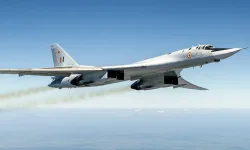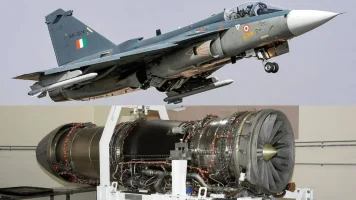
The United States is undertaking a significant modernization of its nuclear weapons arsenal in response to a deteriorating global security environment and escalating threats from adversaries such as Russia, China, North Korea, and Iran.
This information comes from a recent report by the National Nuclear Security Administration (NNSA), a division of the Department of Energy, presented to the U.S. Congress.
The report, titled "Fiscal Year 2025 — Stockpile Stewardship and Management Plan — Biennial Plan Summary," highlights the growing challenges to international stability. Russia's disregard for nuclear norms and China's rapidly expanding nuclear capabilities are cited as major concerns.
The report projects that China could reach nuclear parity with the U.S. within the next decade. Furthermore, North Korea's continued missile tests and Iran's escalating uranium enrichment activities contribute to the volatile global landscape.
To address these challenges, the U.S. is investing in modernizing its thermonuclear warheads, extending their lifespan and improving reliability. The NNSA aims to produce 80 plutonium pits annually, crucial components for maintaining the effectiveness of the U.S. nuclear stockpile.
Beyond maintaining existing weapons, the program also includes research and development of new warheads with advanced capabilities to counter evolving threats.
This modernization effort is crucial to ensuring the U.S. nuclear deterrent remains credible and adaptable in the face of a complex geopolitical environment.
The NNSA is working to meet these challenges while maintaining the integrity of existing nuclear capabilities. The report emphasizes that a strong and flexible nuclear deterrent is essential for the Department of Defense to fulfill its mission.
The urgency of this modernization is underscored by Russia's growing alliances with Iran and North Korea, its disregard for treaties like the Comprehensive Nuclear-Test-Ban Treaty, and China's continued nuclear expansion.
Ongoing conflicts in the Middle East and the increasing importance of climate and energy security further emphasize the need for a robust U.S. nuclear deterrent, according to the report.
The NNSA concludes that in this increasingly volatile and unpredictable global environment, nuclear weapons will remain a critical component of U.S. power and a unique deterrent that no other element can replicate in the foreseeable future.


